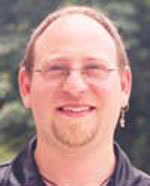Brian Hoffert
North Central College
Rational and Irrational in the Chuang Tzu Lineage
Panel: The Sorting That Puzzles Things Out
AAS Convention, Washington DC, 7 April 2002
Abstract Although the Chuang Tzu has been revered as a Taoist classic for over two thousand years, the question of the text's composition remained largely unexplored until modern scholarship demonstrated that Master Chuang himself wrote only the first seven of the thirty-three chapters in the received text. Particularly significant in this regard is the work of the British Sinologist A C Graham, whose stratification of the text remains the standard amongst Western scholars. According to Graham, the text was compiled by a group of Han dynasty Taoists from a number of different sources manifesting varying degrees of proximity to the thought and style of the Inner Chapters. My paper focuses on two distinct groups of writing which so closely resemble the material of the Inner Chapters that Graham includes them in the "School of Chuang-tzu" section of his translation - despite his claim that no such school existed. Based on his assumption of the text's diverse origins, however, Graham draws a sharp contrast between the rationalising perspective of the :Great Man" writers who regard knowledge as "an unquestioned good" and the irrationalising philosophy of the "Knowledge Roams North" authors for whom "to speak articulately about the Way is enough to show that one has not grasped it" (Graham, Chuang-tzu, p158).
Through a textual analysis of these two groups of material, I will demonstrate that apart from a relatively minor shift in emphasis they share the same fundamental view of true knowledge as "an understanding that rests in what it does not understand." I will then go on to show that both were attempts to elucidate Chuang Tzu's own epistemology and indeed that they represent the work of the first two generations of Master Chuang's disciples.
All lectures and abstracts posted on this site are Copyright © by their authors.
1 Nov 2001 / Contact The Project / Conferences Page
